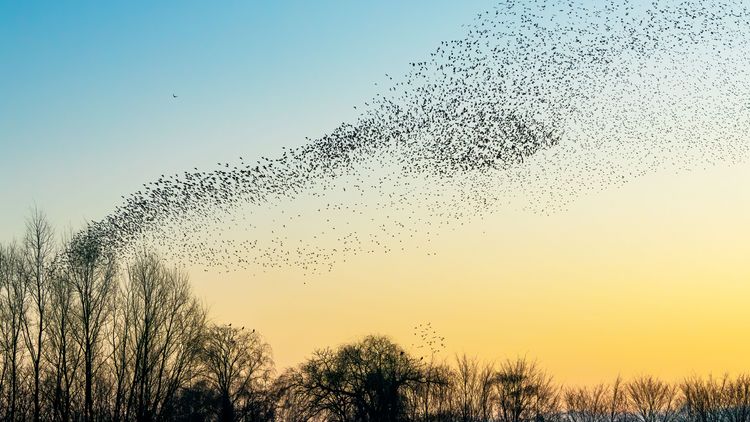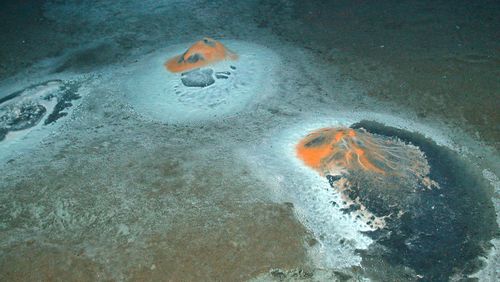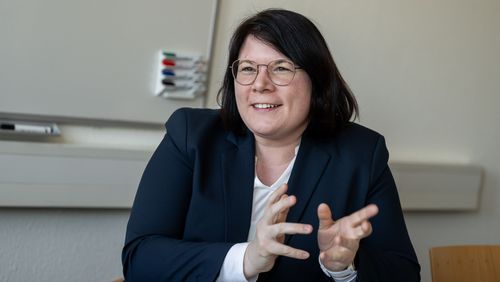The university was successful in the preliminary decision of the excellence competition with a proposal on animal navigation. The existing clusters in hearing research and marine research will apply for an extension.
In the second round of the Excellence Strategy of the German federal and state governments, the University of Oldenburg will apply for three Clusters of Excellence. In addition to two renewal proposals, the university can now also submit a new proposal: As announced today by the German Research Foundation (DFG) and the German Council of Science and Humanities (WR), the draft proposal for the NaviSense project, which deals with the navigational abilities of animals, has been positively evaluated by a panel of experts.
The project team, led by Oldenburg biologist Prof. Dr. Henrik Mouritsen, will now have the opportunity to submit a full proposal by 22 August. The Oldenburg hearing researchers aim to continue a cluster that has been funded since 2012: Together with researchers from Hanover, they are applying for a second extension of the Hearing4All Cluster of Excellence. Together with the University of Bremen, the University of Oldenburg is also applying to continue the Cluster of Excellence entitled „The Ocean Floor – unexplored interface of the Earth”, which is currently led by researchers from Bremen. The decision on all funding will be made in May 2025.
„The fact that the University of Oldenburg has entered the race for the Cluster of Excellence with three proposals is further proof of our research strength,” says University President Prof. Dr. Ralph Bruder. Over the past decade, the university has worked intensively on the strategic development of outstanding research topics. „This has strengthened our cutting-edge research and led to increased national and international visibility for the university,” Bruder adds.
Passing the first hurdle
The NaviSense project is one of 41 out of a total of 143 draft proposals to have passed the first hurdle and been invited to submit a full proposal. The research team aims to find out how animals manage to navigate over long distances. The findings will also feed into new technological developments. The scientists want to address four main aspects. Firstly, they plan to investigate the physical, biochemical and physiological processes involved in animal navigation and the senses that underlie these abilities. For example, the magnetic sense of birds is thought to be based on a quantum effect. The researchers thus want to investigate quantum effects at ambient temperature. They also want to draw conclusions for conservation and ecology. In a fourth focus area, they plan to develop models and algorithms for bioinspired technical systems, such as sensors or autonomous devices.
The Cluster of Excellence Hearing4all („Hearing4all: Medicine: Medicine, Basic Research and Engineering Solutions for Personalized Hearing Care”) is competing for another funding period after two successful applications. The partners are the University of Oldenburg, the Hannover Medical School and the University of Hannover. Together, the partners aim to develop innovative solutions for the care of people with hearing impairments, thereby improving their quality of life in the long term. The research team has made considerable progress over the past ten years. For example, they have succeeded in optimising the sound quality and speech intelligibility of hearing aids, integrating artificial intelligence (AI) into hearing aids and further developing cochlear implants. In the next phase of funding, the researchers want to develop data-driven solutions for hearing aids, investigate the genetic causes of hearing loss with a view to new treatment options, and shed light on social-communicative factors in hearing comprehension, among other things.
A better understanding of the seafloor
Since 2019, researchers from Oldenburg have been involved as partners in the Cluster of Excellence Ocean Floor at the University of Bremen. In the next round, the Universities of Oldenburg and Bremen will be submitting a joint proposal for the renewal of the cluster. The ocean floor is the largest habitat on Earth, but also one of the least explored. The aim of the future joint proposal is to understand the role of the seafloor for the cycling of matter and biodiversity under changing climatic conditions. The researchers will draw on the unique infrastructure and experience of the two universities and their partners, as well as new modelling and data science approaches. By looking at the geological past as well as the biogeochemistry and ecology of the present, they aim to predict future environmental change and provide a scientific basis for the protection and sustainable use of the oceans.
The federal and state governments’ Excellence Strategy strengthens top-level university research. Funding is provided for clusters of excellence in specific research fields and for universities of excellence as strategic support for outstanding university locations. From 2026, up to 70 clusters of excellence will be funded with 539 million euros per year. The Federal Government will contribute 75 percent and the Länder 25 percent. The Excellence Strategy builds on its predecessor, the Excellence Initiative, which ran from 2007 to 2017.




